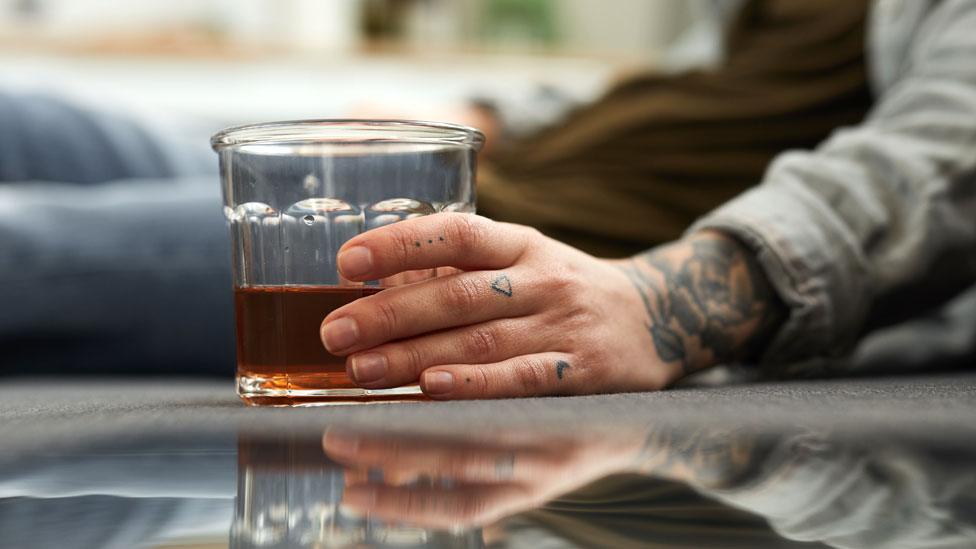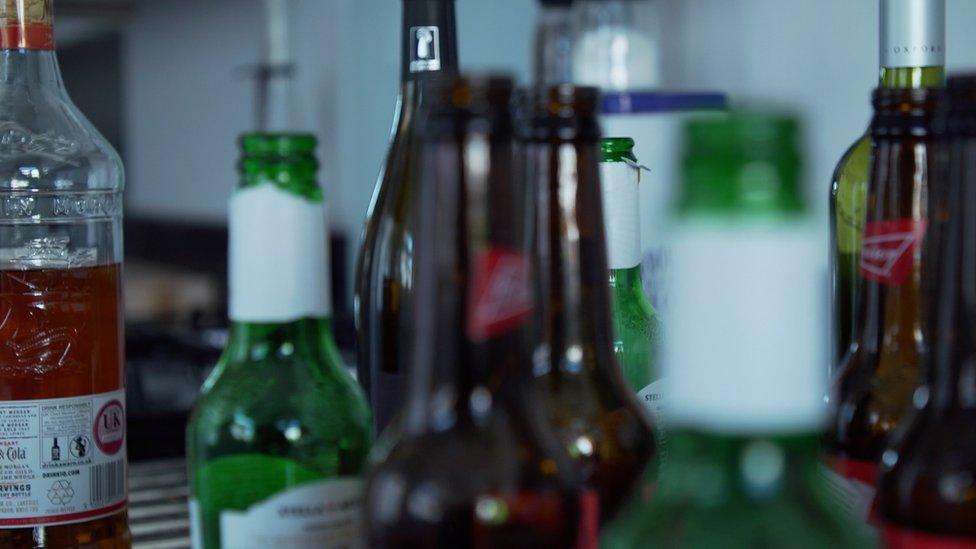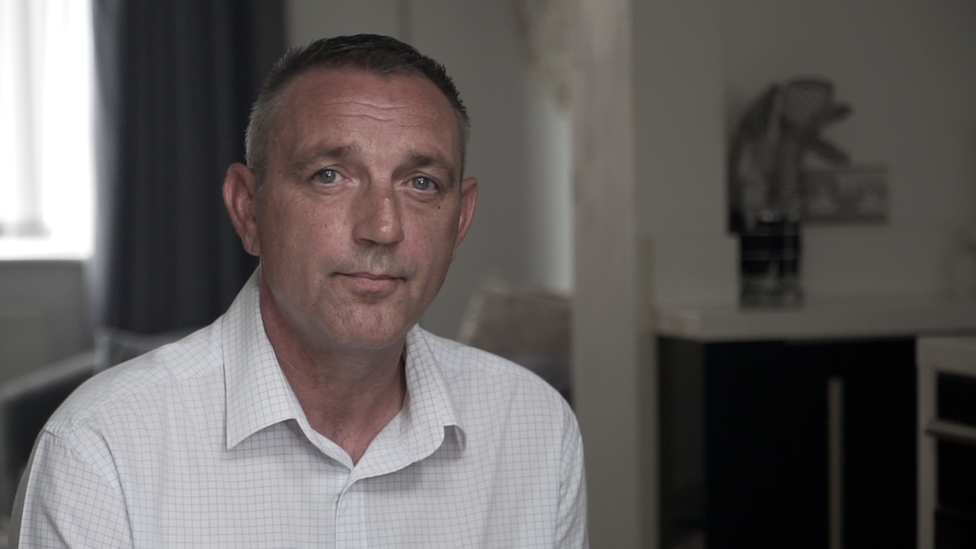Alcohol deaths at highest level for a decade
- Published

Deaths caused by alcohol rose by 17% last year to the highest level for more than a decade, new official figures show, external.
The National Records of Scotland statistics show there were 1,190 alcohol-specific deaths registered in Scotland, 170 more than the previous year.
This was the highest number of alcohol-specific deaths registered since 2008.
Men are more than twice as likely as women to die from alcohol.
This NRS report presents mortality rates for deaths from causes known to be exclusively caused by alcohol consumption.
Alcoholic liver disease and mental and behavioural disorders due to alcohol have been the leading causes of alcohol death since 2000.
Most alcohol-specific deaths were of people in their 50s and 60s, with the average age being 59.9 for men and 57.4 for women.
Deaths in the most deprived areas were four times more than those in the least deprived areas.
Public Health Minister Maree Todd said lockdown had led to people who were drinking heavily consuming even more alcohol.
She said: "Although alcohol consumption in Scotland dropped in 2020, evidence from various surveys has shown those who were drinking heavily before the pandemic were more likely to increase their drinking during lockdown, thereby increasing their risk of harm."

The NRS report said that the number of alcohol-specific deaths increased between 2012 and 2018 before falling by 10% in 2019. The 2020 increase reverses the fall the previous year.
Alison Douglas, chief executive of Alcohol Focus Scotland, said the sudden increase was "devastating to see".
She added: "It is a stark reminder that we cannot afford to take our eye off the ball where alcohol harm is concerned."
Ms Douglas said Scotland had made good progress in addressing problems drinking, with policies such as minimum unit pricing, but the impact of the Covid pandemic threatened to undermine it.
"Many people, particularly heavier drinkers, have reported that they have increased their drinking during the last 18 months," she said.
Justina Murray, from Scottish Families Affected by Alcohol, said its helpline had been "inundated" since lockdown began in March of last year.
"A common theme has been how impossible it is to reach alcohol treatment and support when you need it, with phones ringing out, messages not returned, and few options offered when you do actually reach help," she said.
Professor Sir Ian Gilmore, chair of the Alcohol Health Alliance UK, said the increase in deaths followed a similar pattern to elsewhere in the UK during the Covid-19 pandemic.
Scotland has had the highest alcohol death rate of all UK nations since 2001, when the statistics began.
Death rates for England and Wales have remained relatively unchanged whereas in Scotland they declined from 2006 until 2012.
In Northern Ireland they began to increase in 2014 and now its figures are similar to Scotland's.
Wales and England have consistently had the lowest rates in the UK.
The latest statistics for Scotland show:
The five-year average alcohol-specific death rate for Scotland was 20.5 deaths per 100,000 population.
Four health boards had death rates higher than the average: Greater Glasgow and Clyde; Lanarkshire; Western Isles and Highland.
The council areas with the worst rates were Inverclyde (31.6), Glasgow City (31.3) and North Lanarkshire (29.8).
The local authorities with the lowest death rates were Shetland (10.0), Aberdeenshire (10.3) and Scottish Borders (11.1).
The death rate in the most deprived areas of Scotland was 41 per 100,000 compared 10 in the least deprived 20%.
The increase has been driven by male deaths as there was very little change in the number for females.
Scottish Conservative health spokeswoman Annie Wells said: "It would be a grievous mistake to assume this increase is down to the pandemic alone."
She called on the Scottish government to back her party's plans for a Right to Recovery Bill so more people can immediately access the drug or alcohol addiction treatment they need.
Scottish Labour health spokeswoman Jackie Baillie said it was clear that the pandemic had caused the number of deaths to rise and everything possible must be done to get treatment and rehabilitation services back on track.
"With deaths four times higher in the most deprived areas it is obvious that action is needed, not only to reduce alcohol-related harm and deaths, but to tackle the underlying causes of alcohol misuse," she said.
Scottish Greens health spokeswoman Gillian Mackay said: "We need to recognise the role that poverty and mental health plays in this, providing earlier treatment and support where it is needed."
Scottish Liberal Democrat health spokesman Alex Cole-Hamilton said the latest figures showed the crushing weight of deprivation on people's lives.
He said addiction should be treated as an illness.
"Only be adopting a trauma-informed approach to this issue, do we have any hope of seeing these numbers decline," he said.
- Published23 August 2020
